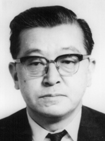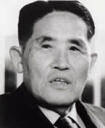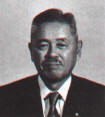Thinkers and Gurus
There have been many instrumental thinkers and practitioners over the years who have influenced and developed the understanding and maturity of process improvement today. Here are overviews of just a few.
Alternative overviews of lean and quality guru's can be found on the links page→
 |
Dr W Edwards Deming
(1900 - 1993) Dr Deming was trained as a statistician, and his expertise was used in the US during WWII to improve the quality of equipment, using statistical techniques. He is better known for his post war work in Japan in the 1950's, where he taught statistical process control and concepts of quality. These concepts, adopted by many Japanese companies, achieved huge improvements in quality which gave the Japanese markets benefits for many years. Deming developed the well known Deming cycle (PDCA→) and believed that all managers needed to have what he called "A system of profound knowledge" which included:
|
 |
Kaoru Ishikawa
(1915 - 1989) Ishikawa always insisted that quality could go one stage further, and that quality improvement is a continuous process. He built on Deming's Cycle (PDCA→), increasing the 4 steps to 6. He is widely known for introducing Quality Circles, and concentrated on introducing statistical techniques, focusing on data quality, analysis and presentation. These included the Ishikawa or fishbone diagram→ for which he is probably best know. |
 |
Shigeo Shingo (1909
- 1990) Shigeo Shingo was best known for developing Poka-Yoke→, or error proofing. In the 1960's he gradually realised that statistical quality control methods would not, in themselves, reduce defects to zero. His idea was to stop a process whenever a defect was detected, and identify and remove the cause there and then. Inspection therefore became part of the process, and not a sideline. He also developed thinking on lean, and "waste". He was credited with the observation that only the last turn of a bolt tightens it and the rest is just movement, thereby bringing the concepts of waste to intricate detail, but if within processes that repeated often would create significant opportunities for cost saving. |
 |
Taiichi Ohno (1912 - 1990) Ohno was the father of the Toyota production system, which led on to lean manufacturing. He developed the concept of the "pull" system, where stock is replenished as it is used, and not made in batches for inventory based on targets. Production is therefore driven by sales and not by forecasts, and pushing inventory blindly though the production system. |